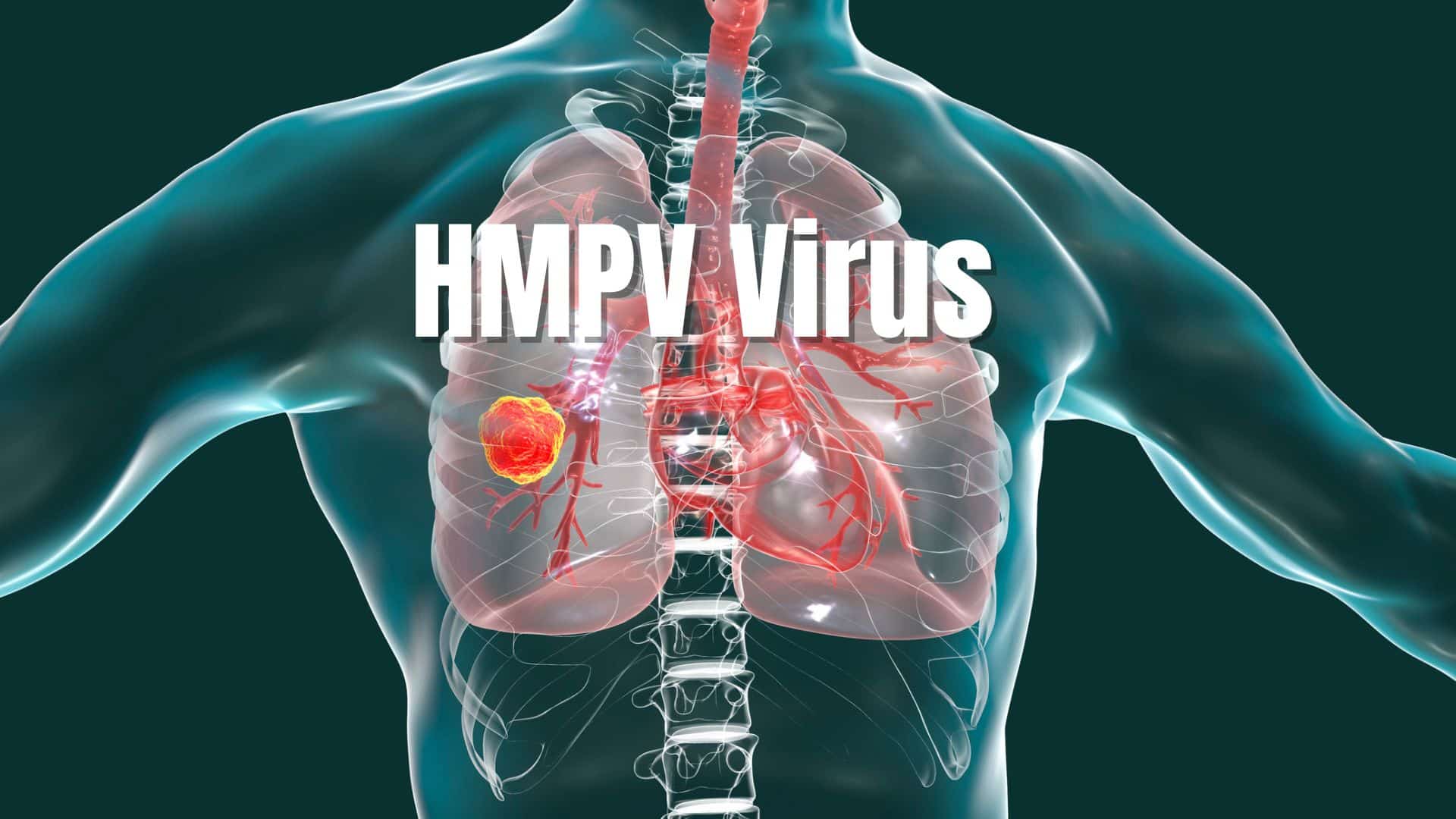
HMPV (hMPV), which stands for human metapneumovirus is a virus that causes respiratory infections, particularly in young children, the elderly, and individuals with weakened immune systems. Here are the basics of HMPV, its symptoms, and how it can be prevented and treated.
What is HMPV?
Human metapneumovirus (HMPV) transmits from person to person through close contact. While HMPV symptoms typically resemble those of a cold, they can be more severe for some populations. In 2001, Dutch scientists discovered HMPV.
Before the age of five, the majority of people will become infected with HMPV. Throughout a person’s lifetime, this virus recurs. Along with the flu season, HMPV infections frequently occur in the winter and early spring. According to research, hMPV is a factor in 10% to 12% of pediatric respiratory diseases. Most cases are minor, but between 5% and 16% of children will develop a pneumonia-like infection of the lower respiratory tract. (Cleveland Clinic)
Symptoms of HMPV
Cough, fever, nasal congestion, and shortness of breath are symptoms that are frequently linked to HMPV. Clinical signs of HMPV infection are comparable to those of other viruses that cause upper and lower respiratory infections and may develop to bronchitis or pneumonia. The estimated incubation time is 3 to 6 days, and the median sickness duration might vary depending on the severity of the infection, although it is comparable to other viral respiratory illnesses. (Centers for Disease Control and Prevention)
Diagnosis of HMPV
Healthcare practitioners might not frequently think about or test for HMPV because it is only lately that this respiratory virus has been identified. When HMPV is frequently circulating, healthcare professionals will consider HMPV testing.
Your doctor will do a physical exam and patient history to determine the presence of a respiratory infection. Your doctor may prescribe lab testing to determine the specific virus causing your sickness in order to identify HMPV as the cause of the respiratory infection more conclusively. (American Lung Association)
Prevention and Treatment of HMPV
Neither a vaccination nor a particular antiviral medication are currently available to treat or prevent HMPV. By taking the following actions, you can halt the spread of HMPV and other respiratory viruses such as COVID-19, Cold and Flu:
- Wash hands in soapy water for at least 20 seconds
- Avoid putting your unclean hands near their mouth, nose, or eyes.
- Stay away from ill people’s close quarters.
- Those with symptoms resembling a cold should cover their mouth and nose when coughing and sneezing, wash their hands frequently and properly (with soap and water for at least 20 seconds), not let anyone use their cups or dining utensils, avoid kissing others and remain at home if they are ill.
- Additionally, sanitizing potentially contaminated surfaces (like doorknobs and shared toys) could possibly aid in halting the spread of HMPV.
(Centers for Disease Control and Prevention)
HMPV is a respiratory illness that can cause a range of symptoms, from mild to severe. Good hygiene practices and staying home when sick are essential for preventing the spread of the virus. Most persons with moderate HMPV symptoms don’t need emergency care since supportive therapy for symptoms at home is sufficient, and the sickness should go away on its own. If you or a loved one is experiencing symptoms of HMPV, it is crucial to seek medical attention promptly.
PCR BioFire Testing Panel
We can test with the PCR BioFire RP2.1 Panel which rules out 22 different respiratory pathogens that cause viruses and bacterial infections that affect the lungs. A nasal swab and about 45 minutes will identify if you have one of the following illnesses:
Viruses
- Adenovirus
- Coronavirus 229E
- Coronavirus HKU1
- Coronavirus NL63
- Coronavirus OC43
- Severe Acute Respiratory Syndrome Coronavirus 2 (SARS-CoV-2)
- Human Metapneumovirus
- Human Rhinovirus/Enterovirus
- Influenza A virus
- Influenza A virus A/H1
- Influenza A virus A/H3
- Influenza A virus A/H1-2009
- Influenza B virus
- Parainfluenza virus 1
- Parainfluenza virus 2
- Parainfluenza virus 3
- Parainfluenza virus 4
- RSV (Respiratory syncytial virus)
Bacteria
- Bordetella parapertussis
- Bordetella pertussis
- Chlamydia pneumoniae
- Mycoplasma pneumonia
Knowing which pathogen is causing illness is key to assessing a clear course of treatment. Call us today or find our PCR same-day test scheduling app and make an appointment to be seen. It’s quick, accurate and will give you piece of mind if you have a complicating medical condition, or will interact closely with a child, the elderly or someone with compromised immunity.
Works Cited
“Human Metapneumovirus (HMPV): Causes & Treatment.” Cleveland Clinic, my.clevelandclinic.org/health/diseases/22443-human-metapneumovirus-hmpv.
“Human Metapneumovirus.” Centers for Disease Control and Prevention, Centers for Disease Control and Prevention, 10 Feb. 2023, www.cdc.gov/ncird/human-metapneumovirus.html.
Association, American Lung. “Human Metapneumovirus (HMPV) Symptoms, Causes and Risk Factors.” American Lung Association, www.lung.org/lung-health-diseases/lung-disease-lookup/human-metapneumovirus-hmpv/symptoms-diagnosis.
